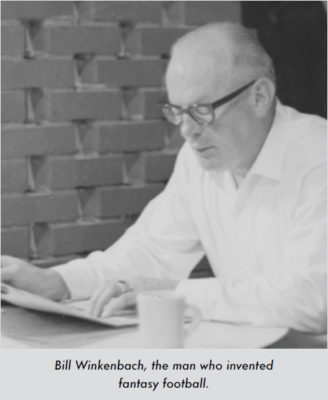Inducted: 2001
 George William “Bill” James (born October 5, 1949, in Holton, Kansas) is a baseball writer, historian, and statistician whose work has been widely influential. Since 1977, James has written more than two dozen books devoted to baseball history and statistics. His approach, which he termed sabermetrics in reference to the Society for American Baseball Research (SABR), scientifically analyzes and studies baseball, often through the use of statistical data, in an attempt to determine why teams win and lose. His Baseball Abstract books in the 1980s are the modern predecessor to websites using sabermetrics such as Baseball Prospectus and Baseball Primer (now Baseball Think Factory).
George William “Bill” James (born October 5, 1949, in Holton, Kansas) is a baseball writer, historian, and statistician whose work has been widely influential. Since 1977, James has written more than two dozen books devoted to baseball history and statistics. His approach, which he termed sabermetrics in reference to the Society for American Baseball Research (SABR), scientifically analyzes and studies baseball, often through the use of statistical data, in an attempt to determine why teams win and lose. His Baseball Abstract books in the 1980s are the modern predecessor to websites using sabermetrics such as Baseball Prospectus and Baseball Primer (now Baseball Think Factory).
In 2006, Time named him in the Time 100 as one of the most influential people in the world. He is currently a Senior Advisor on Baseball Operations for the Boston Red Sox. In 2010, Bill James was inducted into the Irish American Baseball Hall of Fame.
Innovations
Among the statistical innovations attributable to James are:
- Runs Created. A statistic intended to quantify a player’s contribution to runs scored, as well as a team’s expected number of runs scored. Runs created is calculated from other offensive statistics. James’s first version of it was: Runs Created = (Total Bases * (Hits + Walks))/(Plate Appearances). Applied to an entire team or league, the statistic correlates closely to that team’s or league’s actual runs scored. Since James first created the statistic, sabermetricians have refined it to make it more accurate, and it is now used in many different variations.
- Range factor. A statistic that quantifies the defensive contribution of a player, calculated in its simplest form as RF = (Assists + Put Outs)/(Games Played). The statistic is premised on the notion that the total number of outs that a player participates in is more relevant in evaluating his defensive play than the percentage of cleanly handled chances as calculated by the conventional statistic Fielding Percentage.
- Defensive Efficiency Rating. A statistic that shows the percentage of balls in play a defense turns into an out. It is used to help determine a team’s defensive ability. Calculated by: 1 – ((Opp. Hits + Reached on Error – Opp. Home runs) / (Plate appearances – Walks – Strikeouts – HitByPitch – Opp. Home runs)).
- Win Shares. A unifying statistic intended to allow the comparison of players at different positions, as well as players of different eras. Win Shares incorporates a variety of pitching, hitting and fielding statistics. One drawback of Win Shares is the difficulty of computing it.
- Pythagorean Winning Percentage. A statistic explaining the relationship of wins and losses to runs scored and runs allowed. In its simplest form: Pythagorean Winning Percentage equals Runs squared divided by the square of Runs plus the square of Runs Allowed. The statistic correlates closely to a team’s actual winning percentage.
- Game Score is a metric to determine the strength of a pitcher in any particular baseball game.
- Major League Equivalency. A metric that uses minor league statistics to predict how a player is likely to perform at the major league level.
- The Brock2 System. A system for projecting a player’s performance over the remainder of his career based on past performance and the aging process.
- Similarity scores. Scoring a player’s statistical similarity to other players, providing a frame of reference for players of the distant past. Examples: Lou Gehrig comparable to Don Mattingly; Joe Jackson to Tony Oliva.
- Secondary average. A statistic that attempts to measure a player’s contribution to an offense in ways not reflected in batting average. The formula is (Extra bases on hits+Walks+Stolen Bases)/At bats. Secondary averages tend to be similar to batting averages, but can vary widely, from less than .100 to more than .500 in extreme cases. Extra bases on hits is calculated with the formula (Doubles)+(Triplesx2)+(Homerunsx3) or more easily, (Total Bases)-(Hits).
- Power/Speed Number. A statistic that attempts to consolidate the various “clubs” of players with impressive numbers of both home runs and stolen bases (e.g., the “30/30″ club (Bobby Bonds was well known for being a member), the “40/40″ club (José Canseco was the first to perform this feat), and even the “25/65″ club (Joe Morgan in the ’70s)). The formula: (2x(Home Runs)x(Stolen Bases))/(Home Runs + Stolen Bases).
- Approximate Value. A system of cutoffs designed to estimate the value a player contributed to various category groups (including his team) to study broad questions such as “how do players age over time”.
Although James may be best known as an inventor of statistical tools, he has often written on the limitations of statistics and urged humility concerning their place amidst other kinds of information about baseball. To James, context is paramount: he was among the first to emphasize the importance of adjusting traditional statistics for park factors and to stress the role of luck in a pitcher’s win-loss record.[citation needed] Many of his statistical innovations are arguably less important than the underlying ideas. When he introduced the notion of secondary average, it was as a vehicle for the then-counterintuitive concept that batting average represents only a fraction of a player’s offensive contribution. (The runs-created statistic plays a similar role vis-à-vis the traditional RBI.) Some of his contributions to the language of baseball, like the idea of the “defensive spectrum”, border on being entirely non-statistical.
STATS, Inc.
In an essay published in the 1984 Abstract, James vented his frustration about Major League Baseball’s refusal to publish play-by-play accounts of every game. James proposed the creation of Project Scoresheet, a network of fans that would work together to collect and distribute this information.
While the resulting non-profit organization never functioned smoothly, it worked well enough to collect accounts of every game from 1984 through 1991. James’s publisher agreed to distribute two annuals of essays and data – the 1987 and 1988 editions of Bill James Presents The Great American Baseball Statbook (though only the first of these featured writing by James).
The organization was eventually disbanded, but many of its members went on to form for-profit companies with similar goals and structure. STATS, Inc., the company James joined, provided data and analysis to every major media outlet before being acquired by Fox Sports in 2001.
Acceptance in mainstream baseball
Oakland Athletics general manager Billy Beane began applying sabermetric principles to running his low-budget team in the late 1990s, to notable effect, as chronicled in Michael Lewis’ book Moneyball).
In 2003, James was hired by a former reader, John Henry, the new owner of the Boston Red Sox.
One point of controversy was in handling the relief pitching of the Red Sox. James had previously published analysis of the use of the closer in baseball, and had concluded that the traditional use of the closer both overrated the abilities of that individual, and used him in suboptimal circumstances. He wrote that it is “far better to use your relief ace when the score is tied, even if that is the seventh inning, than in the ninth inning with a lead of two or more runs.” The Red Sox in 2003 staffed their bullpen with several marginally talented relievers. Red Sox manager Grady Little was never fully comfortable with the setup, and designated unofficial closers and reshuffled roles after a bad outing. When Boston lost a number of games due to bullpen failures, Little reverted to a traditional closer approach and moved Byung-Hyun Kim from being a starting pitcher to a closer. The Red Sox did not follow James’ idea of a bullpen with no closer, but with consistent overall talent that would allow the responsibilities to be shared. Red Sox reliever Alan Embree thought the plan could have worked if the bullpen had not suffered injuries. During the 2004 regular season Keith Foulke was used primarily as a closer in the conventional model; however, Foulke’s usage in the 2004 postseason was along the lines of a relief ace with multiple inning appearances at pivotal times of the game. Houston Astros manager Phil Garner also employed a relief ace model with his use of Brad Lidge in the 2004 postseason.
James is still (2010) employed by the Red Sox, having published several new sabermetric books during his tenure (see Bibliography, below). Indeed, although James is typically tight-lipped about his activities on behalf of the Red Sox, he is credited with advocating some of the moves that led to the team’s first World Series championship in 86 years, including the signing of non-tendered free agent David Ortiz, the trade for Mark Bellhorn, and the team’s increased emphasis on on-base percentage. During his time with the Red Sox, Bill James has received two World Series rings for the team’s 2004 and 2007 victories.
Sabermetrician Martin Bernstein points out on Baseball Prospectus that knowledge is pointless without application. Following the aforementioned Red Sox and Billy Beane’s Oakland Athletics, most major league teams today use sabermetrics and statistic tracking. But although sabermetrics is mostly accepted within baseball, Bernstein says that there is another frontier – the average fan still does not readily use or accept sabermetrics. Beane is such a renowned figure not for his actual innovations in specific statistics or ideas, but for his open-mindedness and application of knowledge that led other’s inside baseball to apply sabermetrics as well. Bernstein concludes that the next most important innovation in the field will be in getting fans to accept and use sabermetic knowledge, and that this goal should be the main focus of sabermetricians until it is accomplished.
The Mind of Bill James, a biography-cum-chronicle of James’s works was published in the spring of 2006. How Bill James Changed Our View of the Game of Baseball was published in February 2007. He was profiled on 60 Minutes on March 30, 2008, in his role as a sabermetric pioneer and Red Sox advisor.
 Ian Allan co-founded Fantasy Football Index in 1987. He and fellow journalism student Bruce Taylor launched the first newsstand fantasy football magazine as a class project at the University of Washington. Fantasy Football Index magazine went on become the industry standard – the national sales leader more than 20 years in a row before sitting out the 2011 season due to an NFL work stoppage.
Ian Allan co-founded Fantasy Football Index in 1987. He and fellow journalism student Bruce Taylor launched the first newsstand fantasy football magazine as a class project at the University of Washington. Fantasy Football Index magazine went on become the industry standard – the national sales leader more than 20 years in a row before sitting out the 2011 season due to an NFL work stoppage. Greg Ambrosius is the General Manager of Consumer Fantasy Games at STATS LLC and a 22-year veteran of the fantasy sports industry. Greg is the founder of the National Fantasy Baseball Championship (NFBC) and the National Fantasy Football Championship (NFFC), the industry’s only multi-city high-stakes events. The NFBC and NFFC have awarded over $11 million in prizes since 2004, with each contest having $100,000 grand prizes. Greg was the editor of the industry’s first national newsstand magazine – Fantasy Baseball Magazine – starting in 1989 and was a past president of the Fantasy Sports Trade Association (2004-08) and the Fantasy Sports Association (2008-10). He is a member of the FSGA’s Hall of Fame and the Fantasy Sports Writers Association’s Hall of Fame. STATS owns and operates all of the live event and online contests for the NFBC and NFFC, servicing hundreds of leagues and thousands of the most die-hard fantasy players in the industry.
Greg Ambrosius is the General Manager of Consumer Fantasy Games at STATS LLC and a 22-year veteran of the fantasy sports industry. Greg is the founder of the National Fantasy Baseball Championship (NFBC) and the National Fantasy Football Championship (NFFC), the industry’s only multi-city high-stakes events. The NFBC and NFFC have awarded over $11 million in prizes since 2004, with each contest having $100,000 grand prizes. Greg was the editor of the industry’s first national newsstand magazine – Fantasy Baseball Magazine – starting in 1989 and was a past president of the Fantasy Sports Trade Association (2004-08) and the Fantasy Sports Association (2008-10). He is a member of the FSGA’s Hall of Fame and the Fantasy Sports Writers Association’s Hall of Fame. STATS owns and operates all of the live event and online contests for the NFBC and NFFC, servicing hundreds of leagues and thousands of the most die-hard fantasy players in the industry. John Benson is CEO of Diamond Analytics Corporation and editor of johnbenson.com. He is the author of more than 50 books and hundreds of essays. He also helps others as a consultant in writing and publishing for businesses, individuals and educational institutions. His consulting approach is that of a strategist, beginning with identity and mission, and then flowing through organization into programs, products, and services.
John Benson is CEO of Diamond Analytics Corporation and editor of johnbenson.com. He is the author of more than 50 books and hundreds of essays. He also helps others as a consultant in writing and publishing for businesses, individuals and educational institutions. His consulting approach is that of a strategist, beginning with identity and mission, and then flowing through organization into programs, products, and services. Also known as “The Talented Mr. Roto, ” Berry is one of the most recognizable faces in the fantasy industry. His writing combines the statistical analysis required for fantasy sports with humor and personal anecdote. He began his ascent in 1999 as a senior columnist for
Also known as “The Talented Mr. Roto, ” Berry is one of the most recognizable faces in the fantasy industry. His writing combines the statistical analysis required for fantasy sports with humor and personal anecdote. He began his ascent in 1999 as a senior columnist for  Paul Charchian was the co-founder of Fanball.com, one of the largest pure-play fantasy sites on the internet.Starting in 1993, he helped grow the company from a handful of part-time enthusiasts in his apartment to 80 employees spanning offices in three cities. He published over 200 issues of Fantasy Football Weekly, more than any other industry publication. Fanball.com grew into a well-respected one-stop-shop for league management, player news, fantasy contests and advice throughout the season and across all sports.
Paul Charchian was the co-founder of Fanball.com, one of the largest pure-play fantasy sites on the internet.Starting in 1993, he helped grow the company from a handful of part-time enthusiasts in his apartment to 80 employees spanning offices in three cities. He published over 200 issues of Fantasy Football Weekly, more than any other industry publication. Fanball.com grew into a well-respected one-stop-shop for league management, player news, fantasy contests and advice throughout the season and across all sports. Steve Cohen has been with SiriusXM since 2004 and has three decades of experience working in radio. As Senior Vice President of Sports Programming, he oversees the news and talk programs – including the hiring of talent, show development and production – on all of SiriusXM’s sports channels. He led the development and launch of first-of-their-kind dedicated sports radio channels like SiriusXM NFL Radio, SiriusXM Fantasy Sports Radio, SiriusXM NASCAR Radio, SiriusXM College Sports Nation, SiriusXM FC and SiriusXM Rush, as well as the all-sports Mad Dog Sports Radio channel. He has managed the MLB Network Radio, SiriusXM NHL Network Radio and SiriusXM PGA TOUR Radio channels since the merger of Sirius and XM in 2008. He also oversees all of the live play-by-play programming available to SiriusXM listeners, including NFL, MLB, NBA and NHL games, NASCAR, IndyCar, college sports, international soccer, horse racing and more.
Steve Cohen has been with SiriusXM since 2004 and has three decades of experience working in radio. As Senior Vice President of Sports Programming, he oversees the news and talk programs – including the hiring of talent, show development and production – on all of SiriusXM’s sports channels. He led the development and launch of first-of-their-kind dedicated sports radio channels like SiriusXM NFL Radio, SiriusXM Fantasy Sports Radio, SiriusXM NASCAR Radio, SiriusXM College Sports Nation, SiriusXM FC and SiriusXM Rush, as well as the all-sports Mad Dog Sports Radio channel. He has managed the MLB Network Radio, SiriusXM NHL Network Radio and SiriusXM PGA TOUR Radio channels since the merger of Sirius and XM in 2008. He also oversees all of the live play-by-play programming available to SiriusXM listeners, including NFL, MLB, NBA and NHL games, NASCAR, IndyCar, college sports, international soccer, horse racing and more. Inducted in 2013
Inducted in 2013 Twenty-five years ago, just five years after receiving his Fellowship in the Society of Actuaries, John Dewan left a highly successful career as an insurance actuary to pursue a life-long dream, the development of the most timely and comprehensive computer database in sports. The fulfillment of that dream was Sports Team Analysis and Tracking Systems, Inc., orSTATS, Inc. During John’s time as President and CEO, STATS grew rapidly and was recognized in Inc. Magazine’sInc. 500, a list of America’s 500 Fastest-Growing Private Companies, ranking #144. In recognition of his leadership role in making real-time sports information available to consumers, John was named to the Crain’s Chicago Business list of key technology players in Chicago and was a three-time finalist for theKPMGIllinois High Tech Awards.The success of the company culminated in its sale to an affiliate of Ruppert Murdoch’s News Corporation and Fox Broadcasting, News Digital Media.
Twenty-five years ago, just five years after receiving his Fellowship in the Society of Actuaries, John Dewan left a highly successful career as an insurance actuary to pursue a life-long dream, the development of the most timely and comprehensive computer database in sports. The fulfillment of that dream was Sports Team Analysis and Tracking Systems, Inc., orSTATS, Inc. During John’s time as President and CEO, STATS grew rapidly and was recognized in Inc. Magazine’sInc. 500, a list of America’s 500 Fastest-Growing Private Companies, ranking #144. In recognition of his leadership role in making real-time sports information available to consumers, John was named to the Crain’s Chicago Business list of key technology players in Chicago and was a three-time finalist for theKPMGIllinois High Tech Awards.The success of the company culminated in its sale to an affiliate of Ruppert Murdoch’s News Corporation and Fox Broadcasting, News Digital Media. John started working at USA Today in 1991on the agate desk. He compiled stats and answered the phone calls of the first generation of Rotisserie geeks.
John started working at USA Today in 1991on the agate desk. He compiled stats and answered the phone calls of the first generation of Rotisserie geeks. George William “Bill” James (born October 5, 1949, in Holton, Kansas) is a baseball writer, historian, and statistician whose work has been widely influential. Since 1977, James has written more than two dozen books devoted to baseball history and statistics. His approach, which he termed sabermetrics in reference to the Society for American Baseball Research (SABR), scientifically analyzes and studies baseball, often through the use of statistical data, in an attempt to determine why teams win and lose. His Baseball Abstract books in the 1980s are the modern predecessor to websites using sabermetrics such as Baseball Prospectus and Baseball Primer (now Baseball Think Factory).
George William “Bill” James (born October 5, 1949, in Holton, Kansas) is a baseball writer, historian, and statistician whose work has been widely influential. Since 1977, James has written more than two dozen books devoted to baseball history and statistics. His approach, which he termed sabermetrics in reference to the Society for American Baseball Research (SABR), scientifically analyzes and studies baseball, often through the use of statistical data, in an attempt to determine why teams win and lose. His Baseball Abstract books in the 1980s are the modern predecessor to websites using sabermetrics such as Baseball Prospectus and Baseball Primer (now Baseball Think Factory).
 It was only appropriate that the two people most responsible for the growth of fantasy baseball were the first ones inducted into the Fantasy Sports Hall of Fame. Daniel Okrent and Glen Waggoner Founding Fathers of Rotisserie Baseball were officially inducted into the Hall of Fame at March’s Fantasy Sports Trade Conference in Orlando.
It was only appropriate that the two people most responsible for the growth of fantasy baseball were the first ones inducted into the Fantasy Sports Hall of Fame. Daniel Okrent and Glen Waggoner Founding Fathers of Rotisserie Baseball were officially inducted into the Hall of Fame at March’s Fantasy Sports Trade Conference in Orlando. Multiply’s founders were previously partners of Daedalus World Wide Corporation (“DWWC”) which was founded in 1995, and operated some of the first mass-market web sites on the Internet. In 1996, DWWC launched Commissioner.com, a fantasy sports statistics service that was licensed to, and private-labeled or co-branded for: CBS.SportsLine.com, the National Football League, the National Basketball Association, Major League Baseball, CNN/SI, America On-line, Netscape, Excite, the PGA TOUR and others. In December 1999 DWWC was merged into SportsLine.com, Inc., and operated as a wholly-owned subsidiary. In 2004 the DWWC team was inducted into the Fantasy Sports Trade Association Hall of Fame for its influential role in creating the now thriving on-line fantasy sports industry. Having worked together and experienced growth in start-ups through high-profile publicly-traded companies, Multiply’s team is well poised for repeat success.
Multiply’s founders were previously partners of Daedalus World Wide Corporation (“DWWC”) which was founded in 1995, and operated some of the first mass-market web sites on the Internet. In 1996, DWWC launched Commissioner.com, a fantasy sports statistics service that was licensed to, and private-labeled or co-branded for: CBS.SportsLine.com, the National Football League, the National Basketball Association, Major League Baseball, CNN/SI, America On-line, Netscape, Excite, the PGA TOUR and others. In December 1999 DWWC was merged into SportsLine.com, Inc., and operated as a wholly-owned subsidiary. In 2004 the DWWC team was inducted into the Fantasy Sports Trade Association Hall of Fame for its influential role in creating the now thriving on-line fantasy sports industry. Having worked together and experienced growth in start-ups through high-profile publicly-traded companies, Multiply’s team is well poised for repeat success. Phythian is CEO of SportsData, LLC, a sports content provider he co-founded that powers fantasy applications with stats, editorial content and images.
Phythian is CEO of SportsData, LLC, a sports content provider he co-founded that powers fantasy applications with stats, editorial content and images. Peter is President, Roto Sports, Inc.: RotoWire.com, Mockdraftcentral.com, Databasesports.com
Peter is President, Roto Sports, Inc.: RotoWire.com, Mockdraftcentral.com, Databasesports.com RON SHANDLER began publishing his unique brand of statistical information under the Shandler Enterprises, LLC name in 1986. A fantasy leaguer since 1985 and a simulation gamer since 1971, Ron was the first author to develop sabermetric applications for fantasy league play. He is the author of the Baseball Forecaster annual, now in its 26th year of publication. Ron is also the founder of the industry trail-blazing web site, BaseballHQ.com, and First Pitch Forum conference series.
RON SHANDLER began publishing his unique brand of statistical information under the Shandler Enterprises, LLC name in 1986. A fantasy leaguer since 1985 and a simulation gamer since 1971, Ron was the first author to develop sabermetric applications for fantasy league play. He is the author of the Baseball Forecaster annual, now in its 26th year of publication. Ron is also the founder of the industry trail-blazing web site, BaseballHQ.com, and First Pitch Forum conference series. The pioneering Stern, whose long career in the industry is filled with firsts, fittingly becomes the Hall of Fame’s first female honoree.
The pioneering Stern, whose long career in the industry is filled with firsts, fittingly becomes the Hall of Fame’s first female honoree. It was only appropriate that the two people most responsible for the growth of fantasy baseball were the first ones inducted into the Fantasy Sports Hall of Fame. Daniel
It was only appropriate that the two people most responsible for the growth of fantasy baseball were the first ones inducted into the Fantasy Sports Hall of Fame. Daniel After 19 years in newspaper ad sales, much of which was also spent competing in fantasy leagues, Wiegert helped found CDM Fantasy Sports in 1991, starting a career as one of the pioneers of the booming national fantasy game industry. Wiegert turned a small company called Carol’s Fantasy Baseball into a large national service by aligning his company with national publication companies. He first produced fantasy games for The Sporting News and later branched out to include games for USA Today, Baseball Weekly, MSNBC, The Golf Channel and more. Wiegert is also a founding member of the FSGA and the winner of the 2000 FSGA Lifetime Achievement Award. He was inducted in the the FSGA Hall Of Fame in 2001 at Chicago conference.
After 19 years in newspaper ad sales, much of which was also spent competing in fantasy leagues, Wiegert helped found CDM Fantasy Sports in 1991, starting a career as one of the pioneers of the booming national fantasy game industry. Wiegert turned a small company called Carol’s Fantasy Baseball into a large national service by aligning his company with national publication companies. He first produced fantasy games for The Sporting News and later branched out to include games for USA Today, Baseball Weekly, MSNBC, The Golf Channel and more. Wiegert is also a founding member of the FSGA and the winner of the 2000 FSGA Lifetime Achievement Award. He was inducted in the the FSGA Hall Of Fame in 2001 at Chicago conference. Bill created the first fantasy baseball and fantasy football leagues that we know of. In the late 1950s, Bill started the S.T. SIHRT– Superior Tile Summer Invitational Homerun Tournament. In August 1963, he had the first draft of the GOPPPL– the Greater Oakland Professional Pigskin Prognosticators league. He also dabbled in fantasy golf in the late 1950s. The GOPPPL’s purpose was to promote the Raiders and the AFL.
Bill created the first fantasy baseball and fantasy football leagues that we know of. In the late 1950s, Bill started the S.T. SIHRT– Superior Tile Summer Invitational Homerun Tournament. In August 1963, he had the first draft of the GOPPPL– the Greater Oakland Professional Pigskin Prognosticators league. He also dabbled in fantasy golf in the late 1950s. The GOPPPL’s purpose was to promote the Raiders and the AFL. Rick Wolf is the founder and President of Full Moon Sports Solutions, a company dedicated to delivering solutions to major media consulting. Originally started in 2001 with clients like FOX, USA Today, AOL and Topps, Full Moon led Strategic Partnerships for Allstar Stats until it was acquired by NBC Universal in August of 2006.
Rick Wolf is the founder and President of Full Moon Sports Solutions, a company dedicated to delivering solutions to major media consulting. Originally started in 2001 with clients like FOX, USA Today, AOL and Topps, Full Moon led Strategic Partnerships for Allstar Stats until it was acquired by NBC Universal in August of 2006.